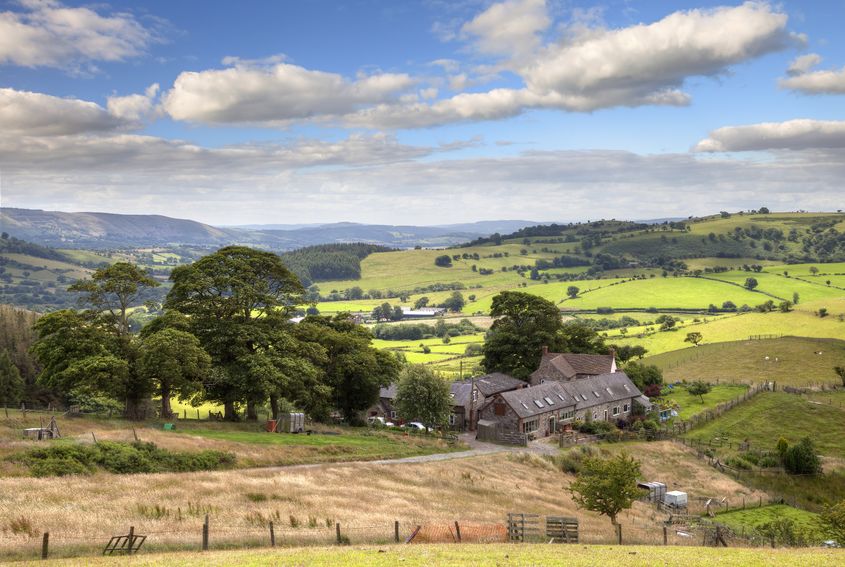
The National Trust has today released a statement on a reform of farm support, proposing a system which is more environmentally friendly.
The conservation organisation said that reforms are needed to "reverse decades of damage to the countryside we love."
It is calling on government to put the "recovery" and "future resilience" of the natural environment at the heart of any funding system that replaces CAP.
"Taxpayers should only pay public subsidy to farmers in return for things that the market won’t pay for but are valued and needed by the public," said National Trust Director-General Dame Helen Ghosh.
"We may need some kind of transition period to get there but that means payments for goods that go beyond food production – for the wildflowers, bees and butterflies that we love, for the farmland birds, now threatened, for the water meadows and meandering rivers that will help prevent the flooding of our towns, and for the rebuilding of the fertility and health of the soils on which both nature and production depend."
'Nature should be abundant everywhere'
The National Trust in particular struck a chord with the role nature plays in farming and people's lifes.
The Trust said it should be "unacceptable to harm" nature but "easy to help it", in a list of principles the organisation would like to see implemented.
Currently, only 1/3 of the basic payment is conditional on meeting ‘green’ farming standards.
In the future, 100% of any public payment "should be conditional on meeting higher standards of wildlife, soil and water stewardship," Dame Helen proposed.
"Nature should be abundant everywhere, the system needs to support nature in the lowlands as well as the uplands - people in towns and cities also need access to wildlife, recreation and the services the environment provides."
Dame Helen then proposed a system in which farmers who deliver the most public benefit should receive the most.
"Currently, the more land you own, the more money you get", Dame Helen said, "In the future, those farmers and land managers who get the most public money should be those who deliver the best outcomes."
A 'damaged countryside'
The National Farmers Union has hit back at the National Trust, saying the 'damaged countryside' isn't a picture many farmers, or visitors to the countryside, recognise.
NFU President Meurig Raymond said: "Farmers have planted or restored 30,000km of hedgerows for example and have increased the number of nectar and pollen rich areas by 134% in the past two years.
"Farmers take their responsibilities as custodians of the countryside seriously.
"Most visitors to the countryside will be enjoying the natural environment and appreciating the views of rural Britain which have been created by farmers – including many of the landscapes showcased by the National Trust.
"We should not be contemplating doing anything which will undermine British farming’s competitiveness or its ability to produce food.
"To do so would risk exporting food production out of Britain and for Britain to be a nation which relies even further on imports to feed itself.
"In our view, food security should be considered to be a legitimate political goal and public good.
The President of the NFU then went on to say that British farmers "are proud" of the "high standards of production, traceability of the food they produce and high animal welfare."
He continued: "All our survey work shows that the British public wants to buy more British food and, interestingly, survey work also shows the British public believes farmers play a beneficial role in improving the environment at the same time."
